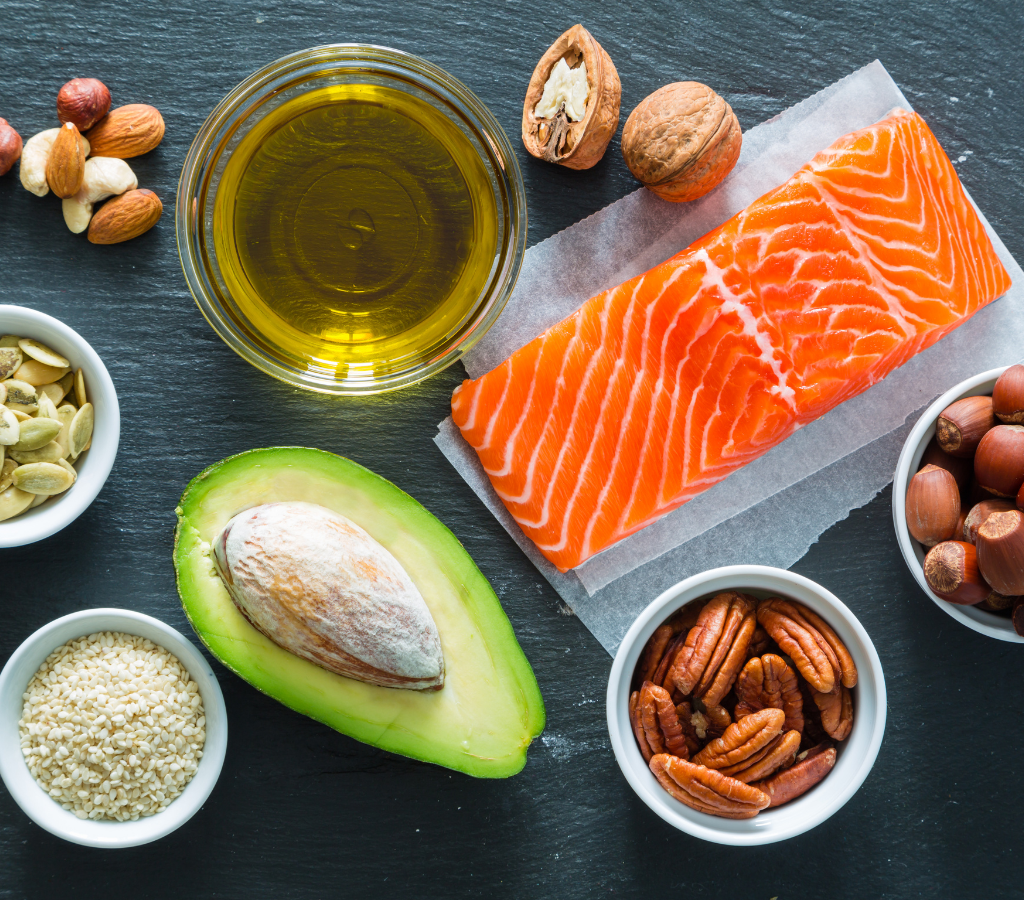The word “fat” typically has a negative connotation, especially in relation to nutrition. While dietary facts can have cons, most people are often unaware of the pros they can bring to one’s health as well. Dietary fats, alongside carbohydrates and proteins, are one of the three macronutrients essential for a balanced and healthy diet. Fats, also known as lipids, are organic compounds that are a concentrated energy source. They play crucial roles in the body, including providing insulation and cushioning for organs, assisting in absorbing fat-soluble vitamins, and serving as a structural component of cell membranes.
Fats are composed of fatty acids, which are long chains of carbon atoms bonded to hydrogen atoms. Dietary fats act as building blocks for hormones, and without these essential fats, our bodies would experience hormonal imbalances. Hormone imbalance can cause sleeping problems, weight gain, indigestion, and many more problems if not regulated. Therefore, it is important to get the proper amount of dietary fat intake to regulate the body’s hormones. There are three main types of dietary fats: unsaturated, saturated, and trans fats.
Unsaturated Fat
Unsaturated fats are considered the healthiest dietary fat, known for their beneficial effects on cardiovascular health. Consuming unsaturated fats in moderation can help lower LDL (the “bad” cholesterol) levels while increasing HDL (the “good” cholesterol) levels. Unsaturated fats are also a great source of essential fatty acids, such as omega-3 and omega-6, which are crucial in brain function, cellular health, and inflammation regulation. Moreover, unsaturated fats provide the body with vitamins A, D, E, and K, which are necessary for immune system support, bone health, and vision. Unsaturated fats are liquid at room temperature and are primarily found in plant-based foods and oils, such as olive oil, avocado, nuts, and seeds. Incorporating unsaturated fats into a balanced diet can help promote heart health and provide the body with important nutrients for optimal functioning.
Saturated Fat
Saturated fats are commonly found in animal-based products and some plant oils, such as certain cuts of meat, dairy products, butter, lard, and coconut oil. Unlike unsaturated fats, saturated fats are solid at room temperature. They have long been associated with negative health effects, particularly concerning cardiovascular health. Consuming high amounts of saturated fats can raise LDL cholesterol levels in the blood, increasing the risk of heart disease and stroke. Although it is not advised to avoid saturated fats completely, limiting the intake and replacing them with healthier alternatives is generally recommended.
Trans Fat
Trans fats are widely recognized as the most unhealthy type of fat. They are artificial fats created by hydrogenation, a process that adds hydrogen to liquid oils and makes them solid at room temperature. Consuming trans fats can increase the risk of heart disease, stroke, and type 2 diabetes. Moreover, trans fats can promote inflammation, leading to chronic health issues. They can interfere with the proper functioning of cells and contribute to insulin resistance, which is associated with developing type 2 diabetes. In many countries, regulations have been put in place to limit or ban the use of trans fats in food production due to their detrimental effects on health. Here in the US, the FDA has recently banned the addition of trans fats to food to lower consumption. It is crucial to minimize trans fats in order to maintain an adequate diet.
Finding the Balance
Finding a balance between different dietary fats is important for maintaining overall health. Aim to increase the amount of unsaturated fat in your diet, such as avocados, nuts, seeds, and olive oil. Do your best to limit saturated fat. While some saturated fats are necessary for the body, it’s important not to overconsume them. Reduce the intake of fatty meats, full-fat dairy products, butter, and coconut oil. Instead, opt for lean meats, low-fat dairy alternatives, and healthier cooking oils. Trans fats should be minimized or eliminated as much as possible from your diet. Check food labels and avoid products that contain partially hydrogenated oils or trans fats. These are often found in processed foods, fried foods, and commercially baked goods.
Practice portion control, as moderation, is key when consuming fats. Pay attention to portion sizes and practice mindful eating. Opt for smaller servings of high-fat foods and combine them with healthier options like fruits, vegetables, and whole grains. Remember that a healthy diet is not just about balancing fats, but balancing other nutrients too. Incorporate a variety of fruits, vegetables, whole grains, lean proteins, and legumes to ensure a well-rounded and nutritious eating plan. If you have specific dietary concerns or health conditions, seeking professional advice is always a good idea. Healthcare professionals or registered dietitians can provide personalized guidance and recommendations based on your unique needs. By making conscious choices, you can achieve a balanced intake of dietary fats, promoting overall health and well-being.

